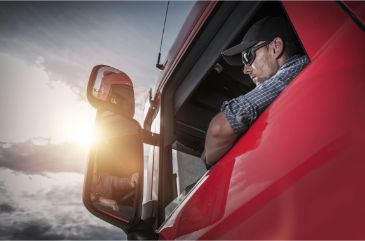 While truck crashes and car crashes might be similar in many ways to most people, there are some distinct differences between the outcomes of the two. Apart from the obvious differences between the average commercial motor vehicle (CMV) and the average passenger vehicle—a CMV can weigh anywhere from 10,000 pounds to 80,000 pounds—there are some other important distinctions to make between these types of collisions.
While truck crashes and car crashes might be similar in many ways to most people, there are some distinct differences between the outcomes of the two. Apart from the obvious differences between the average commercial motor vehicle (CMV) and the average passenger vehicle—a CMV can weigh anywhere from 10,000 pounds to 80,000 pounds—there are some other important distinctions to make between these types of collisions.Difference 1: Damage
The most significant difference between these two collisions is the damage that results from them. In 2011, of fatalities involved in large truck accidents, 72% were occupants of other vehicles and 17% were occupants of large trucks. With CMVs, there will usually be more collateral damage involved because of the size of the vehicle and the force of the crash. Likewise, if small cars collide with larger vehicles, the smaller one will often be no match and will likely be destroyed. Injuries are also much more severe in truck accidents. Wrongful deaths and severe catastrophic injuries can also be caused by these types of collisions.
Difference 2: Filing a Claim
Filing a claim is usually a pain to begin with, but with truck accidents, it tends to be more complicated. Settling a dispute with a trucking accident involves several liability factors, including the driver, his or her company, and whoever does maintenance on the truck. Investigations will have to be done regarding who was at fault in the incident, which will likely take more time. Equipment failure, for example, plays a significant role in causing truck accidents, such as when a tire blows out.
Difference 3: Truckers Licenses
Truckers have more of a stake in accidents. Those who drive CMVs have undergone specialized education and training to drive truck. They also have formalized instructions associated with the type of cargo they are carrying. All commercial truck driver should possess a commercial driver’s license (CDL) that reflects their level of training, qualifying them to carry the load in their truck. If an accident occurs and the driver doesn’t have the proper license, the trucking company could be held liable for negligence in hiring and training. Also, if the CMV driver was inebriated when the truck accident occurred, he or she could be facing the loss of their license for a brief period, if not permanently.
Talk to our skilled Greenville personal injury attorneys about your case as soon as possible. We can offer you more than 95 years of combined legal experience, and we are dedicated to helping the victims of personal injury seek compensation for their medical bills, lost wages, and pain and suffering.
Contact us at (864) 408-8883 or fill out our online form to schedule your free case consultation today.
